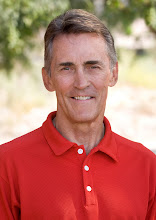Seasonal Weight Management
It’s been three days since Ironman Hawaii and my family has joined me in Kauai for a week of vacation. I’m taking 11 days off from any training at all and just enjoying life and being with them 24/7. We’re having a great time. But even though I’m enjoying life I still miss training. I didn’t bring a bike and can’t run any more. I had to stop three years ago because of knee discomfort due to wear and tear to the edges of my right knee meniscus from nearly 50 years of running. Last Thursday I climbed 75 floors in five-floor intervals over a 45-minute period. Since then the most physical thing I’ve done is walk to the beach and sit down. While being so inactive still causes a bit of guilt it’s not nearly as bad as it was 20 years ago when the thought of a day off was repulsive. Being older and more patient now I know that it will all come back soon enough.
The only part of the time off that really bothers me is sense that I’m gaining excess flab. I still have this desire to eat as I do when training 15 or so hours a week. I have to continually remind myself that I’m not hungry. I’m OK with gaining a couple of pounds. That won’t be a problem. More than that and it will be bit of a bother, as my Brit friends say.
I’ve been told that many of the elite Kenyan runners gain in the neighborhood 10 pounds at the ends of their seasons. Maybe at their youthful ages they can get rid of the excess quickly. When younger I could lose a couple of pounds easily. All I had to do was skip dessert. Now at my age 64 I can no longer do that. If I just look at dessert I gain weight, it seems. It’s interesting how the body changes with age. The older athletes I know have pretty much the same issue. I’ve recently been talking with two of them about this. Their seasons are over and they’re cutting back on training stress, as they should be doing. One of them has gained about five pounds. I’ve been coaching him for six years and it seems to have gotten more difficult for him each year. He’ll soon be working with our TrainingBible Coaching nutritionist, Kelly Cawthorn, who specializes in weight management for athletes using a Paleo diet platform.
All of this has to do with power-to-weight ratio. Managing your weight so that you are an optimal mass come race day is critical to success. Of course, this doesn’t mean trying to be excessively skinny, but rather healthfully lean. It’s OK to gain some weight now – just not too much. I like to have the athletes I coach at this lean level by 12 weeks prior to their first A-priority races of the season at the latest. The other part of the equation – power – is also developed during this time. This is largely a muscular training component that starts with weight training and progresses to sport-specific power development in Base 2. I’ll write more on this related subject at a later time


7 Comments:
nutrition is a big probelm for me... I always tend to eat not enough... do you have a goood book suggestion for nutrition that could help me?
Thanks a lot
And by the way; I have "cyclist training bible" and it realy is a bible :) good job
Philippe - I'm quite biased on books on sport nutrition. I recommend Paleo Diet for Athletes by Cordain and me.
thanks a lot for your reply I'll be getting that book this week
Thanks
Ugh, this subject is always such a tough one!!
It sucks so much to have that weight gain again in the off season but every year I know it's inevitable. And I know that come late winter/early spring, it will be time to start working to take it off again. And even though I am young, it still seems harder every year.
Thanks for reminding us that it's a normal thing that happens to most athletes...
Is it possible to gain weight or excess fat on the paleo diet?
Anon--I think it would come down to what you mean by "excess." If that means you increased the daily, net caloric intake then then, yes, I believe it would eventually result in a weight gain. If you mean calories were shifted from carb and/or protein to fat (% fat changed) then, no, I don't believe there would be a weight gain.
Eager to read more on this topic, Joe. You left me "hungry" for more!
Post a Comment
<< Home